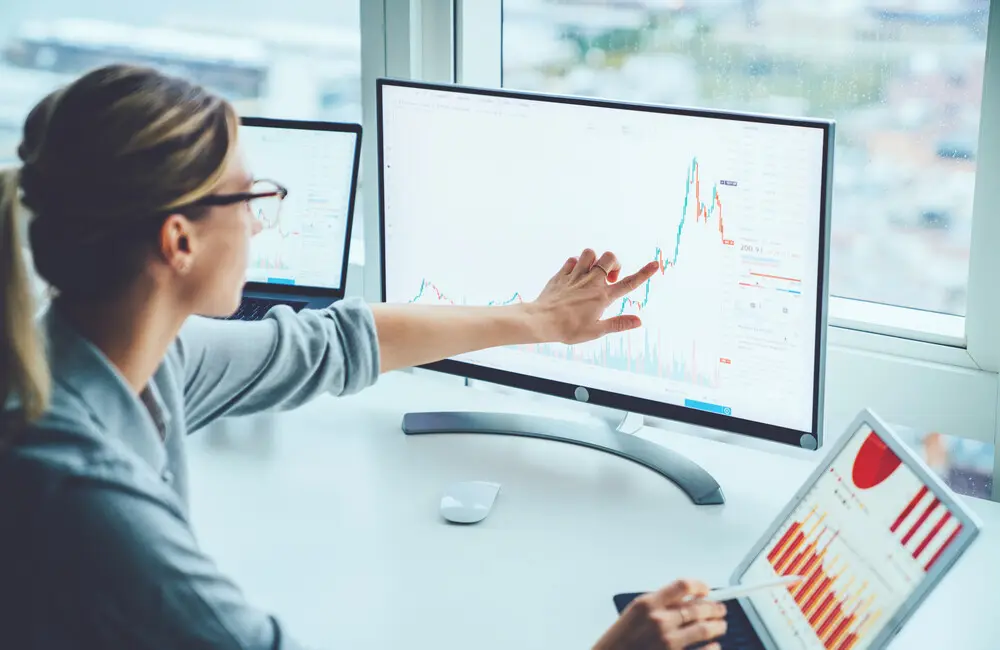Innovative technology is changing the accounting field. The emergence of artificial intelligence (AI), data analytics, cloud computing, and other tech tools opens the door to optimizing many accounting tasks.
These technologies have revolutionized businesses in every industry. Accountants must be technologically conversant to serve their clients’ accounting needs properly.
In today’s business environment, accounting students need technical and data literacy skills to succeed. Earning a Master of Science in Accounting provides those skills.
How Technology is Transforming Accounting
As with most industries, advances in technology can lead to more efficient and effective work if used properly. However, it leaves some feeling as if they are “living in an age of Digital Darwinism, a time where technology and society are evolving faster than many organizations can adapt to the changes,” according to a report from the Association of Chartered Certified Accountants (ACCA).
Accountants, however, often lead the way in adopting new technology, according to the ACCA. That’s a quality that’s never been needed more than now.
The Big Four accounting firms have pledged to spend billions developing AI and data analytics technologies. Accounting executives told Bloomberg that this likely would result in some jobs in accounting, such as invoice processing, becoming completely automated. But innovative technology and access to more data give accounting firms the ability to spot trends and anomalies.
A majority of accountants already use cloud computing. According to a survey by consulting firm Robert Half & Associates, 75% of all accountants surveyed in 2018 employ cloud computing in their work or plan to do so soon. That’s a big increase from just two years earlier when 62% responded the same way.
Examples of Technology and AI in Accounting
The following are some of the ways innovative technology and AI in accounting are changing the industry.
Accounting Analytics
Analytics works for accountants in various ways. Automating accounting processes allow accountants more time for analyzing and finding insights from data. They also can use analytics programs for continuous auditing and analyzing full data sets of financial information rather than relying on just small samples.
Artificial Intelligence and Machine Learning
More than 60% of business leaders surveyed by the Harvard Business Review Analytic Services said the future success of their business “will depend on machine learning to outdistance competitors in the future.” Both AI and machine learning are involved in accounting software that can handle routine tasks and free up accountants for more strategic work. While they cannot replicate the human brain, these software programs can learn, determine what is important, “see” visual images and handle complex tasks.
Blockchain
Blockchain provides a secure transaction ledger accessed online from permitted users. It’s most associated with creating transaction histories for cryptocurrency, but the technology has far more uses. A report from Deloitte speculates that blockchain could replace the centuries-old “double ledger” system of accounting by giving accountants a chance to enter each transaction on a transparent register that is sealed and impossible to change. Deloitte reports that it is “similar to the transaction being verified by a notary – only in an electronic way.”
Data Security
Accountants must always be aware of data security when it comes to accounting processes. Those issues have multiplied with the use of cloud computing. Accountants who work with the cloud or any innovative technology must have a detailed understanding of how data security works in these areas.
Merrimack College Programs for Accountants
How can accountants prepare for this new world? The Merrimack College online Master of Science in Accounting program focuses on tools and emerging technology as well as accounting data information. The program also offers a concentration on business analytics, fraud & forensics, and taxation.
Students can finish the program in as little as 16 months, making it a focused, fast way for accountants to prepare for the CPA. It’s open to students with an accounting degree or a business degree, or neither. The flexible program offers different paths to earning a master’s degree in accounting, depending on the student’s educational background.
For students motivated to learn about AI in accounting, a graduate degree teaches them the applications of cutting-edge accounting technology. Combining this knowledge with accounting expertise makes graduates much more likely to succeed in the jobs of the future.
